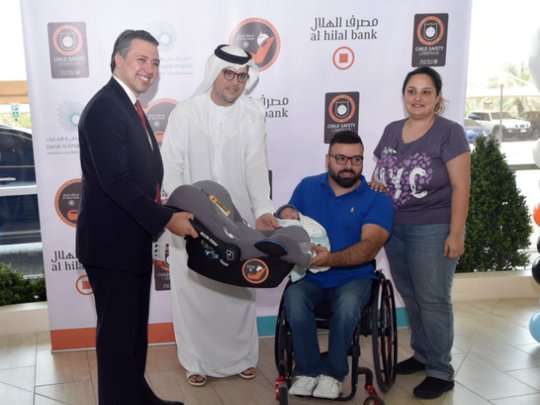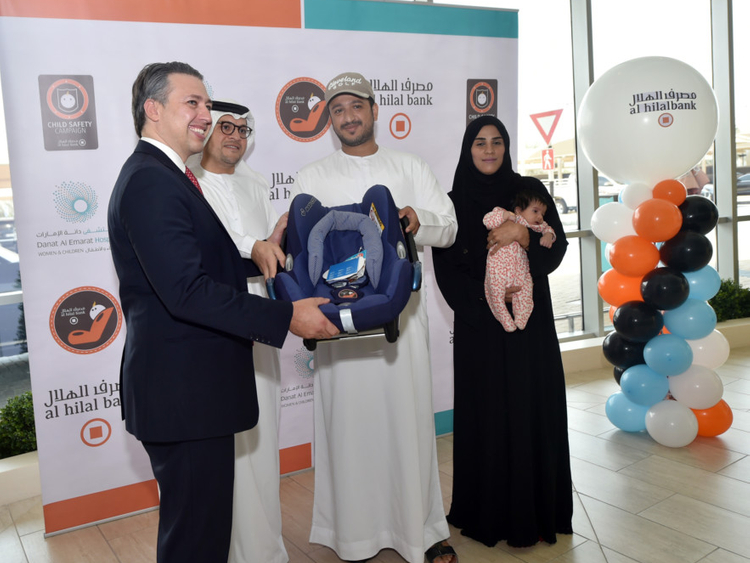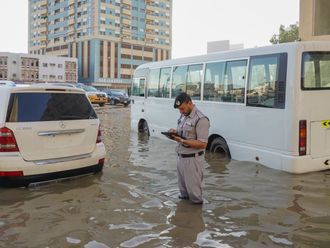
Abu Dhabi
Father-of-six Saeed Mohammad had never felt the need for car seats, preferring to do away with the hassle of installing the bulky gear. But the recent focus on traffic safety for children has been an eye-opener for him.
“We already have two car seats for my two other daughters, and I would not dream of travelling without an infant seat for one-month-old Maryam,” the 35-year-old Emirati father told Gulf News.
He is one of a growing group of parents which is becoming aware of the importance of car seats in ensuring child safety on the road. Traffic officials have repeatedly highlighted that road traffic accidents are the biggest cause of deaths among children in the UAE. A number of young lives have already been lost in the first half of 2017 because children were not properly strapped in.
In light of this, Al Hilal Bank on Monday launched a community initiative to distribute infant car seats free of change across hospitals in the country.
“In the first half of 2017, the UAE’s Ministry of Interior revealed that nine children had died, and more than 100 were injured as a result of not using child car seats. This loss to the community can be avoided. Our initiative to provide car seats to families in the UAE is, therefore, both timely and important,” said Alex Coelho, chief executive officer at the bank.
“Within the year, we hope to distribute 500 free car seats under the first phase of our new child safety campaign, starting with 50 seats to parents [visiting Danat Al Emarat Hospital for Women and Children]. We are also looking into the feasibility of developing a financing initiative that will enable parents to purchase car seats, as many families tend to find the cost quite prohibitive,” he told Gulf News.
Since July, the use of child car seats has been mandatory for children below the age of four, and all passengers have to be safely buckled up wherever they are seated. The regulations are part of a raft of new traffic laws, and they have shed light on the vast number of parents who still fail to safely strap in their children.
For instance, a recent survey by international market research firm YouGov found that nearly half of 1,000 Emirati parents surveyed did not use car safety or booster seats. Among some of the reasons cited were the high costs of the equipment, as well as resistance from children, and the perception that it is safer to hold children in one’s arms during the ride.
“Every time we go out, I buckle up my older children, and make sure that our three youngest daughters are properly strapped into age-appropriate seats. It takes a while to get it done, and there is not much room in the car afterwards, but I understand that it is essential to my children’s safety,” said Mohammad after receiving a free infant car seat.
“I firmly believe that it is irresponsible to ride in a car when children are not strapped in,” said Carmen Gomez, 29, a Spanish-Palestinian mother-to-be visiting the hospital.
“I haven’t been able to find an infant car seat though, as stores have been all out since the new laws came into effect. So I hope this means there is now growing awareness about child safety. I also think that hospitals should not allow parents to take a newborn home unless their car is fitted with an infant seat,” Gomez said after receiving a free car seat.












